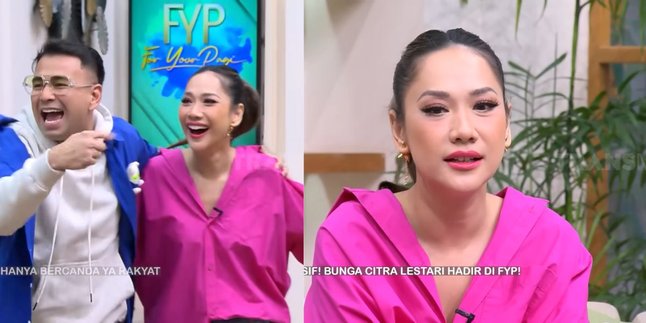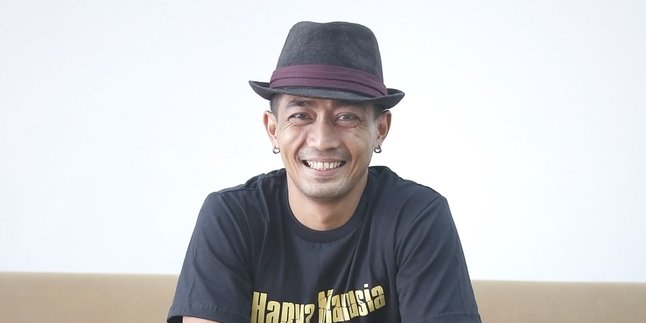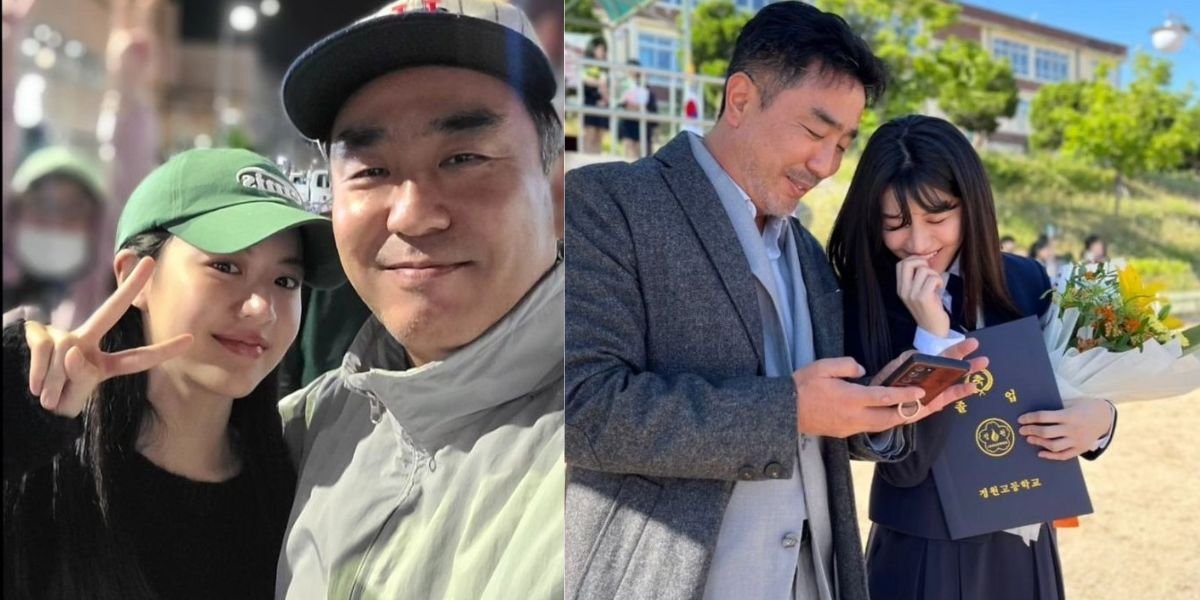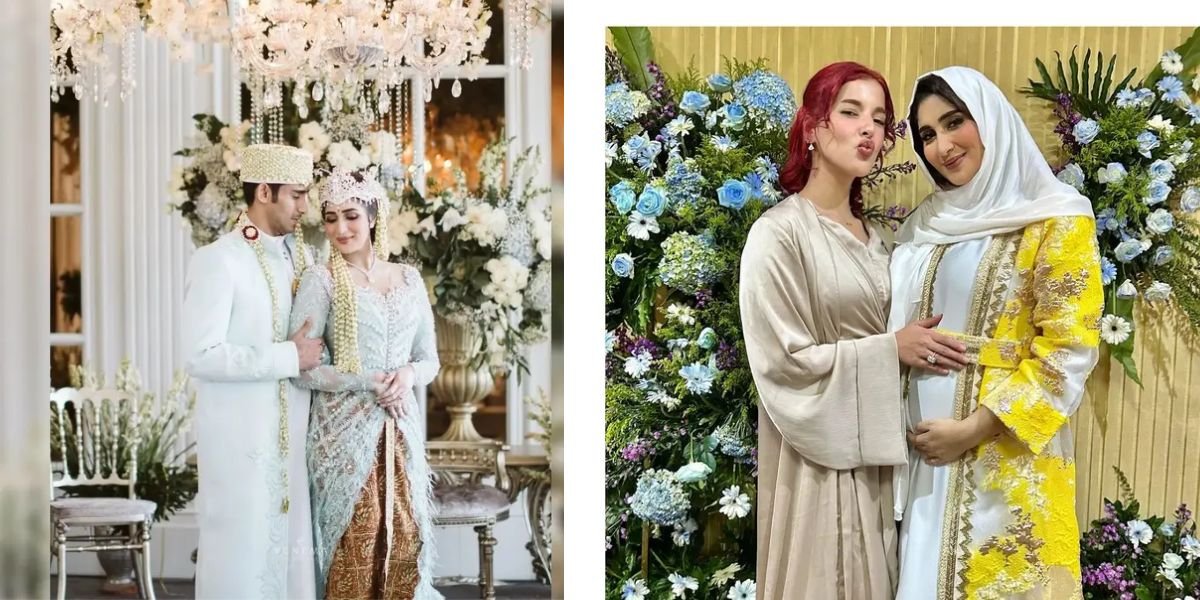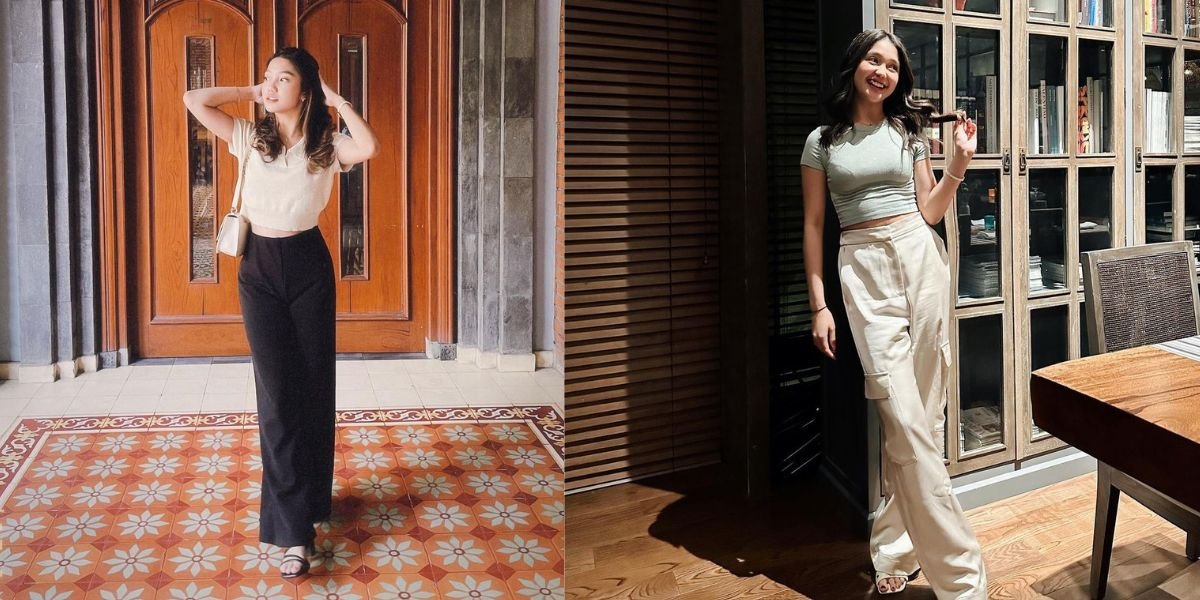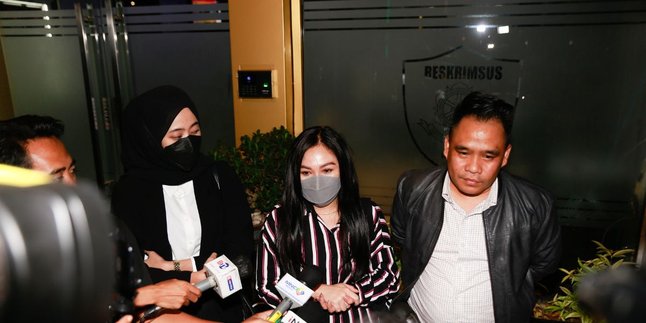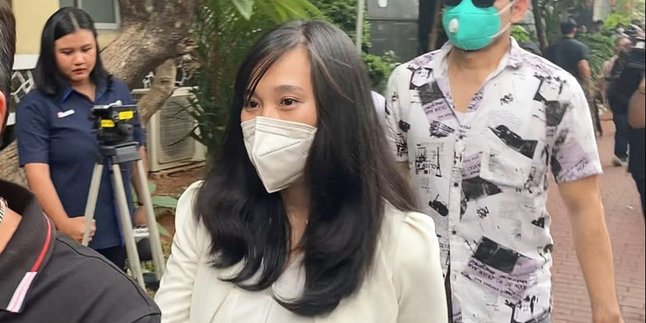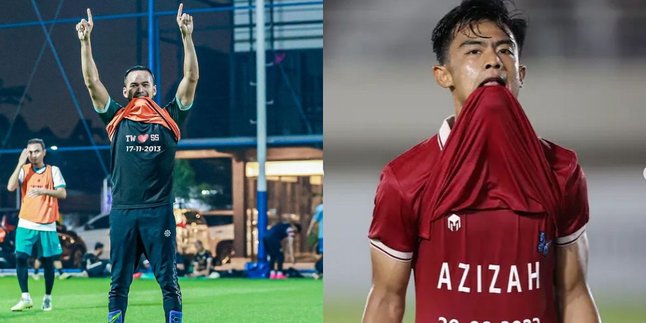Kapanlagi.com - Script is a composition that is still written by hand and has not been published. Well, for KLovers who want to write a short drama script, you can read this article. Not only knowing examples of short drama scripts, but also other explanations in making a drama script.
KLovers can learn how to write a script, especially for short dramas, correctly, especially if you want to write a short educational motivation film script. Additionally, the types of dramas so that KLovers can better understand what types of dramas can be made as short dramas.
Therefore, according to various sources, here are some examples of short drama scripts along with how to write them and their types. Let's check it out, KLovers.
1. Drama Script
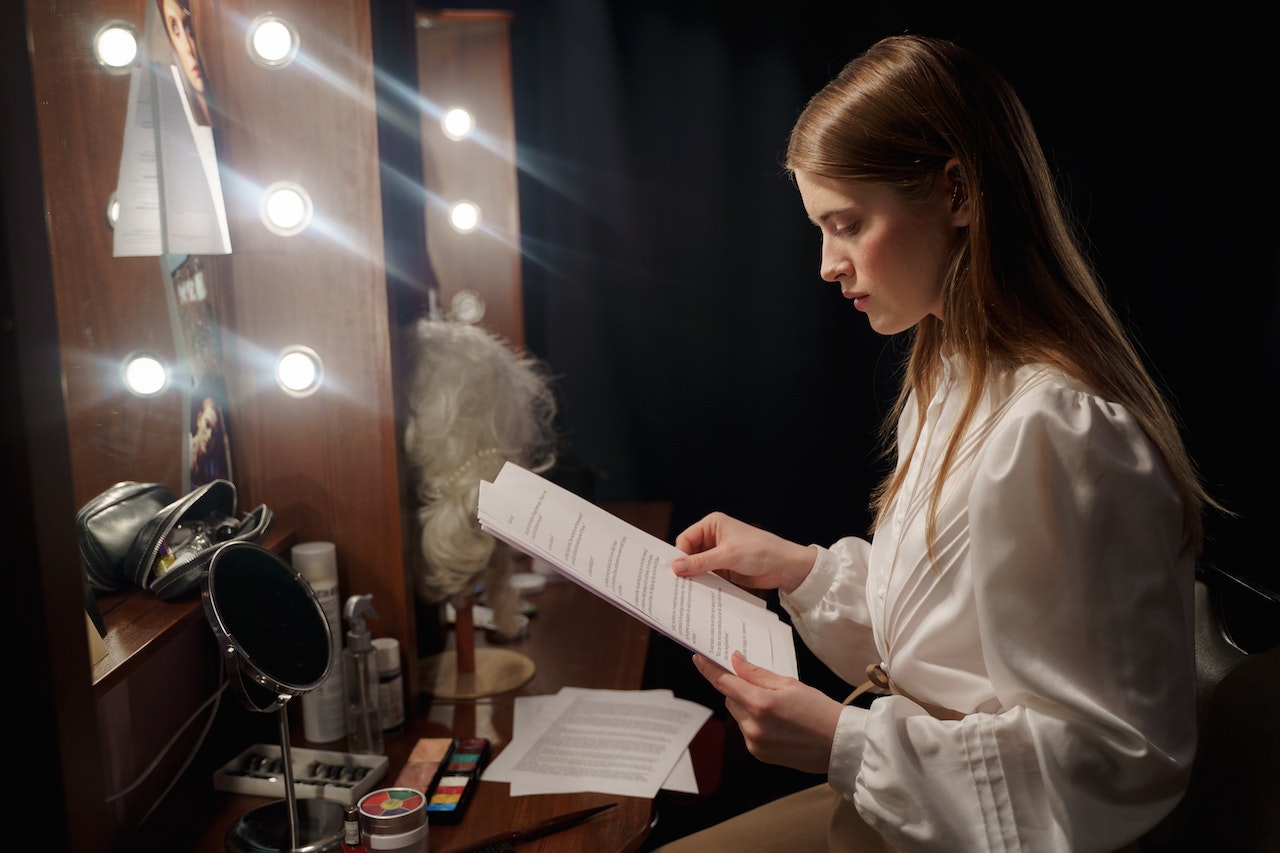
Meaning of drama script (credit: pexels.com)
Before KLovers know an example of a short drama script, KLovers can understand what the meaning of a drama script is. According to the Indonesian Dictionary (KBBI), a drama script is a composition that is still written by hand and has not been published. Etymologically, the meaning of a drama script is taken from the Arabic language, namely the word 'nushkhatum' which means 'a piece of paper'.
This is because generally a drama script is in the form of several sheets that need to be corrected before being used. The meaning of a drama script will explain about the themes and content that can be accepted by the audience. In general, a drama script is a writing that is commonly known by everyone involved in the writing world.
In addition, a drama script itself is a story that is described in a sequence of scenes that are equipped with a place or setting, circumstances, dialogue, and often there are characters in it. And it can be called as the basis of a story both in film and in performances in the theater.
2. Types of Drama
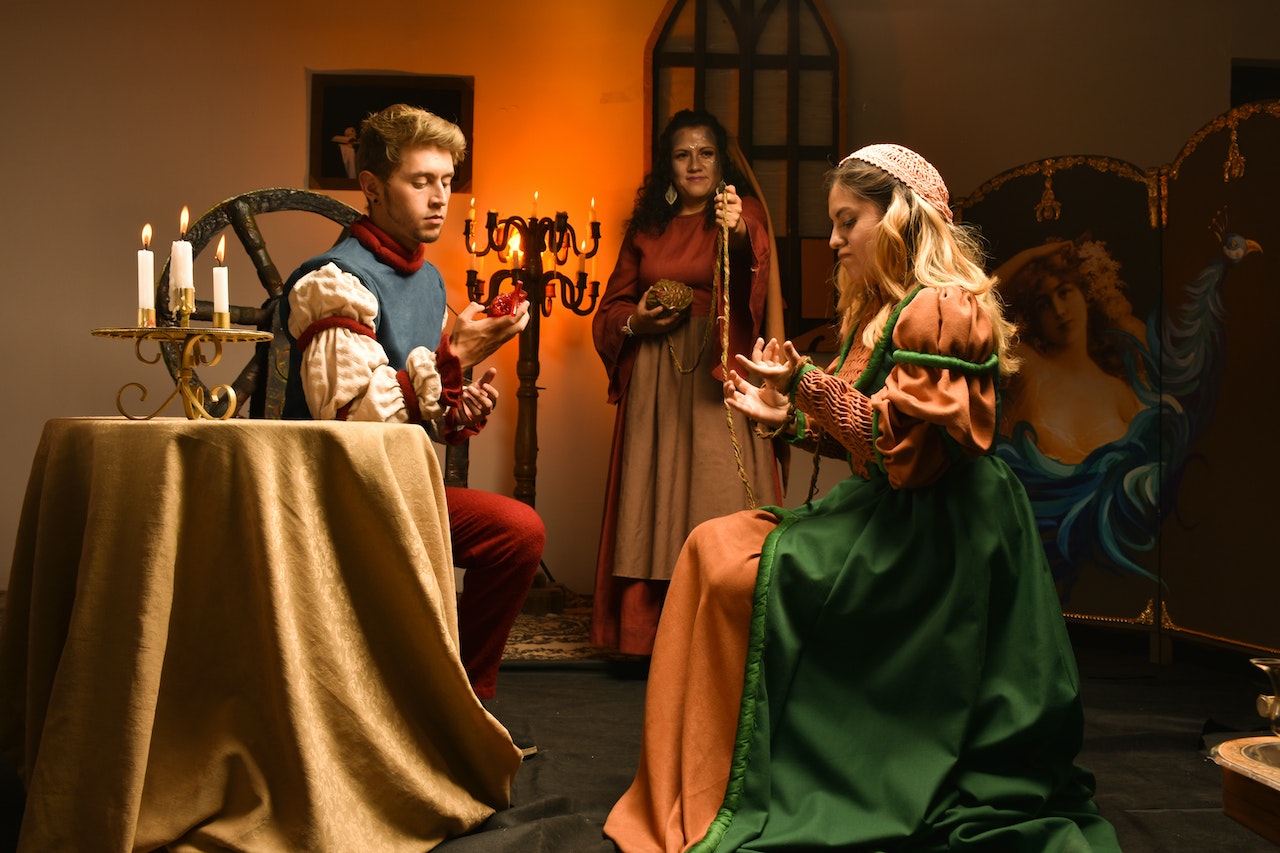
Types of drama (credit: pexels.com)
After KLovers understand what a drama script is, especially for short dramas, KLovers can also understand the types of dramas. Yes, there are many types of dramas, KLovers. Here are the types of dramas as reported by gramedia.com:
1. Drama with or without a script
- Traditional drama is a type of drama that often does not use a script.
- Modern drama is a type of drama that often uses a script.
2. Drama Based on Literary Forms of Conversation
- Poetry drama is a type of drama where the conversations are made in the form of poetry or contain many elements of poetry.
- Prose drama is a type of drama where the conversations are made in prose.
3. Drama Based on Content Presentation
- Tragedy drama is a type of drama that presents its characters in a sad or gloomy state. This drama usually occurs because the character is in a serious situation.
- Comedy drama is a light and entertaining type of drama. Although full of jokes or humor, this drama often contains satire. Unlike tragedy dramas, comedy dramas usually have a happy ending.
- Tragicomedy, is a type of drama that uses sad or mournful plots, but the ending of this drama brings happiness to the main characters.
4. Drama Based on the Quantity of Conversation
- Pantomime drama is a type of drama that is performed with minimal use of words. This drama maximizes the use of body movements by the characters.
- Mini-word drama is a type of drama that is performed using only a few words. This drama usually maximizes the use of body movements by the characters and a lot of sounds from their mouths, but the sounds produced are not words.
- Monologue drama is a type of drama that presents a drama with only one main character who monologues or talks to themselves throughout the performance.
- Dialogue drama is a type of drama that showcases its characters dialoguing using words.
5. Drama Based on the Size of Other Artistic Elements
- Opera drama is a type of drama performance that prioritizes vocal and musical art.
- Dance drama is a type of drama performance that prioritizes dance art.
- Tablo drama is a type of drama performance that has minimal action or dialogue.
6. Drama Based on Other Forms
- Absurd drama is a type of drama performance that consciously ignores or violates conventions of plot, characterization, and theme.
- Reading drama is a type of drama text that is only suitable for reading and not suitable for performance.
- Bourgeois drama is a type of drama performance that has themes about the lives of the nobility.
- Domestic drama is a type of drama performance that has themes about the lives of ordinary people.
- Liturgical drama is a type of drama text that is performed simultaneously with church worship ceremonies.
- One-act drama is a type of drama performance that only has one act and one theme with a small number of actors or actresses, and has a concise plot.
- Folk drama is a type of drama performance that emerges and develops within folk festivals. This drama is usually performed in rural areas.
7. Drama Based on Presentation Mediums
- Stage drama is a type of drama performed by actors and actresses on stage.
- Radio drama is a type of drama broadcasted on the radio. This drama can only be heard by the listeners.
- Television drama is a type of drama that is similar to stage drama. However, this drama is presented through television media.
- Film drama is a type of drama that is shown on a big screen like a cinema.
- Wayang drama is a type of drama accompanied by wayang performance.
- Puppet drama is a type of drama that uses puppets in its performance.
3. How to Write a Short Drama Script

How to write a drama script (credit: pexels.com)
Before KLovers write about a short drama script, KLovers should also know how to write a script, especially for a short drama script. There are no fixed rules in scriptwriting, but as beginners, you can follow the steps or methods for writing a short drama script as follows:
1. Digging for Story Ideas
Story ideas need to be determined from the beginning. These ideas can come from anywhere, for example, from personal experiences, observing other works, cases in the news, and so on. And it could be the beginning of writing a short drama script.
2. Premise
If you have found a story idea, it's time to determine the basic premise. The basic premise of the story is a short sentence that describes the story in general in the making of a short drama script.
3. Short Synopsis
As you have read, a short drama script also has a synopsis. Starting from the premise, you can develop it into three to four sentences. Remember, you must focus on the predetermined premise.
4. Long Synopsis
The next step is to write a long synopsis. You already have several sentences in the short synopsis, now it's time to break it down into three or four paragraphs to include story details in the short drama script.
5. Treatment
Now, you already have a synopsis that contains three to four paragraphs. The long synopsis includes characters, problems, and actions of the characters. Well, you still need to elaborate on the story in each paragraph. Eventually, you will have a short story from the synopsis.
6. Script
If you have successfully followed the procedure for writing a short drama script, now is the time to enter the script writing. Since you have a short story with 9-10 paragraphs, you can start pouring it into script format.
To make it easier, you can elaborate on the short story into scene sequences. These scenes are divided according to the setting and time. If there is one situation in one place and time, then it is counted as one scene. To be clearer, please see the following example.
Scene 1 - House - Day
Scene 2 - Pak Tomo's Shop - Afternoon
Scene 3 - House Terrace - Morning
4. Example of a Short Drama Script
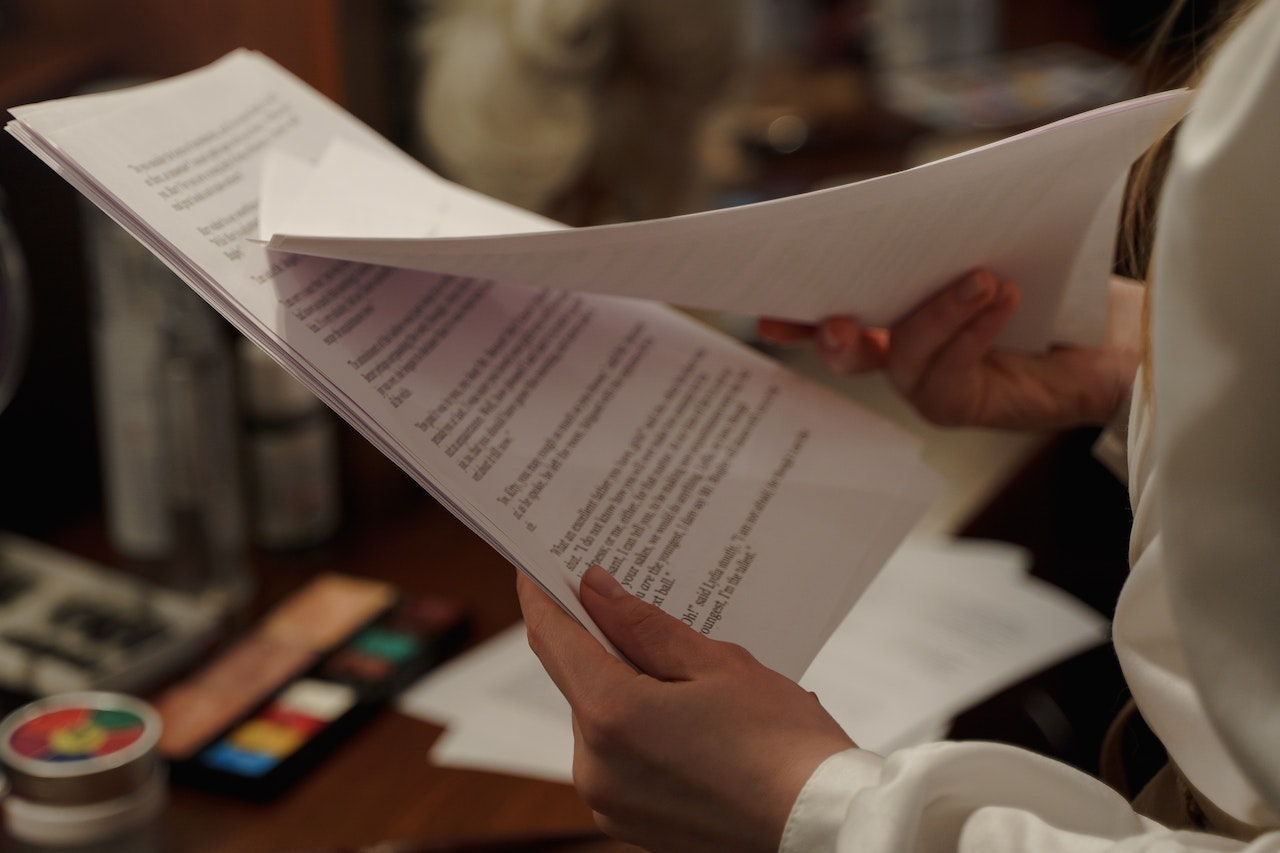
Example of a drama script (credit: pexels.com)
Of course, if you want to create a script, you need to know the examples. And here are two examples of short drama scripts that KLovers can know and understand:
1. Scene 1 on the house terrace - daytime
Grandfather: Ma, get me my tea, please!
Grandmother: Don't call me Ma, we're old, already grandparents. Our children are already adults, some even have children. We have become grandparents.
Grandfather: Alright then, Nek, get me my tea!
Grandmother: Am I really that old that you call me grandmother?
Grandfather: Well, why don't you want to be called mother and get angry when called grandmother?
Neighbor who heard their commotion chimed in.
Mr. Sukri: You always argue like young people who are still dating.
Grandfather: That's what I want, Mr. Sukri, but what can I do, my skin has already sagged.
Mrs. Sukri: So, if the skin sags, you're considered old, right, Sir?
Grandmother: He always acts like a young child, but even lifting a chair makes him fart.
Suddenly Karni arrived, the first child of the husband and wife along with their child named Yuli. Karni brought souvenirs from out of town for her parents.
Grandfather: How many years has it been since you visited your father and mother, Karni?
Yuli: Grandfather is forgetful, we just came here a month ago.
Grandmother: He is forgetful, sometimes he forgets that he has eaten six times a day.
Mr. Karni: Wow, then your body will become fat like a sumo wrestler.
Mrs. Karni: If your body becomes fat, poor mother will be pushed away with a slight touch.
Grandmother: Huusss, do you think I don't have the strength to fight against your sumo wrestler body? Mother's strength is still strong like a young person.
Mrs. Sukri: Turns out, husband and wife are the same, they don't want to admit they're old.
2. Scene 1 at home - nighttime
Diana is studying at her study table. And her mother comes to Diana.
Mother: Still studying?
Diana: Yes, mom, I have an exam tomorrow.
Mother looks at Diana's worried face.
Mother: (While gently touching Diana's shoulder) You know? Not all subjects in school have to be mastered by you.
Diana: (Looking at her mother) So, I don't need to study hard?
Mother: It's not like that. Trying your best and not giving up is a good thing. However, when the results you get are not optimal, it's not because you're not good enough, you are already good. It's just that not all subjects can be mastered to the maximum.
Diana: (Putting on a confused face) I don't understand what you're saying.
Mother: Imagine, I ask you to clean the house all at once. I want you to cook, sweep, do laundry, mow the lawn in the garden, all at the same time. Can you do it?- Yes, maybe you can do some tasks well, but the rest?
Diana: Yes, I may not be able to do everything well.
Mother: The same goes for studying. It doesn't mean you're not studying. You are obliged to study, it's your responsibility and obligation as a student. However, when your efforts don't produce optimal results, it doesn't mean you're lacking. I believe you have mastered one of the thousand skills well.
5. Elements of a Drama Script

Elements of a drama script (credit: pexels.com)
Drama scripts have several elements that help write the script. The elements of a drama script consist of the title to the epilogue or the end of a drama. Let's see what the elements of a drama script are.
1. Title
The title is the first gateway that introduces the story to the audience. In the title, there is the name of a drama script that will be written.
2. Characters and personalities
Characters are the soul of every drama script. They have unique names and characteristics that shape the story. Each character in a drama script has their own personality traits, strengths, and even weaknesses. This also helps in developing the drama story.
3. Acts
The drama script also includes acts. Each act in the drama script consists of several scenes that form the plot of a drama story.
4. Prologue
The prologue in a drama script is the beginning of a story. It serves as a brief introduction to the drama that will be written. They have names and unique characteristics that shape the story. Each character in a drama script has their own personality traits, strengths, and even weaknesses. This also helps in developing the drama story.
3. Acts
The drama script also includes acts. Each act in the drama script consists of several scenes that form the plot of a drama story.
4. Prologue
The prologue in a drama script is the beginning of a story. It serves as a brief introduction to the drama that will be written. Prologue is also known as the opening story of a drama.
5.Scene
Scene is part of a drama script that presents certain characters or atmosphere. It is usually followed by a change of setting, the introduction of new characters, and others.
6.Dialogue
Dialogue is the main way to express thoughts, emotions, and intentions of each character. The conversations between these characters form a communication network that is the core of the story.
7.Surrounding/side/instruction text:
This element of the drama script provides instructions on how to perform the drama on stage. For example, it may include physical movements, facial expressions, and stage arrangements that will assist both the actors and production crew. In other words, this serves as technical instructions for performing the drama.
8.Epilogue
Epilogue is the conclusion that allows the audience to draw conclusions from the story they have witnessed.
6. Difference Between Intrinsic and Extrinsic Elements in Drama

Intrinsic and Extrinsic Elements of Drama (credit: pexels.com)
In addition to the elements of a drama script, there are terms in drama called intrinsic elements and extrinsic elements. Both of these elements are found in a drama and they help in creating a drama script. The difference between intrinsic and extrinsic elements are as follows.
1. Intrinsic elements
The meaning of intrinsic elements is that they are found within the performance of the drama. Here are some elements of intrinsic elements in drama.
- Theme
- Plot
- Characters
- Setting
- Message
- Dialogue
2. Extrinsic elements
Extrinsic elements are the elements that are found outside the drama. The elements in extrinsic elements are:
- Background of the story to be performed.
- Author
- Audience reaction
7. Drama Script by Putu Wijaya
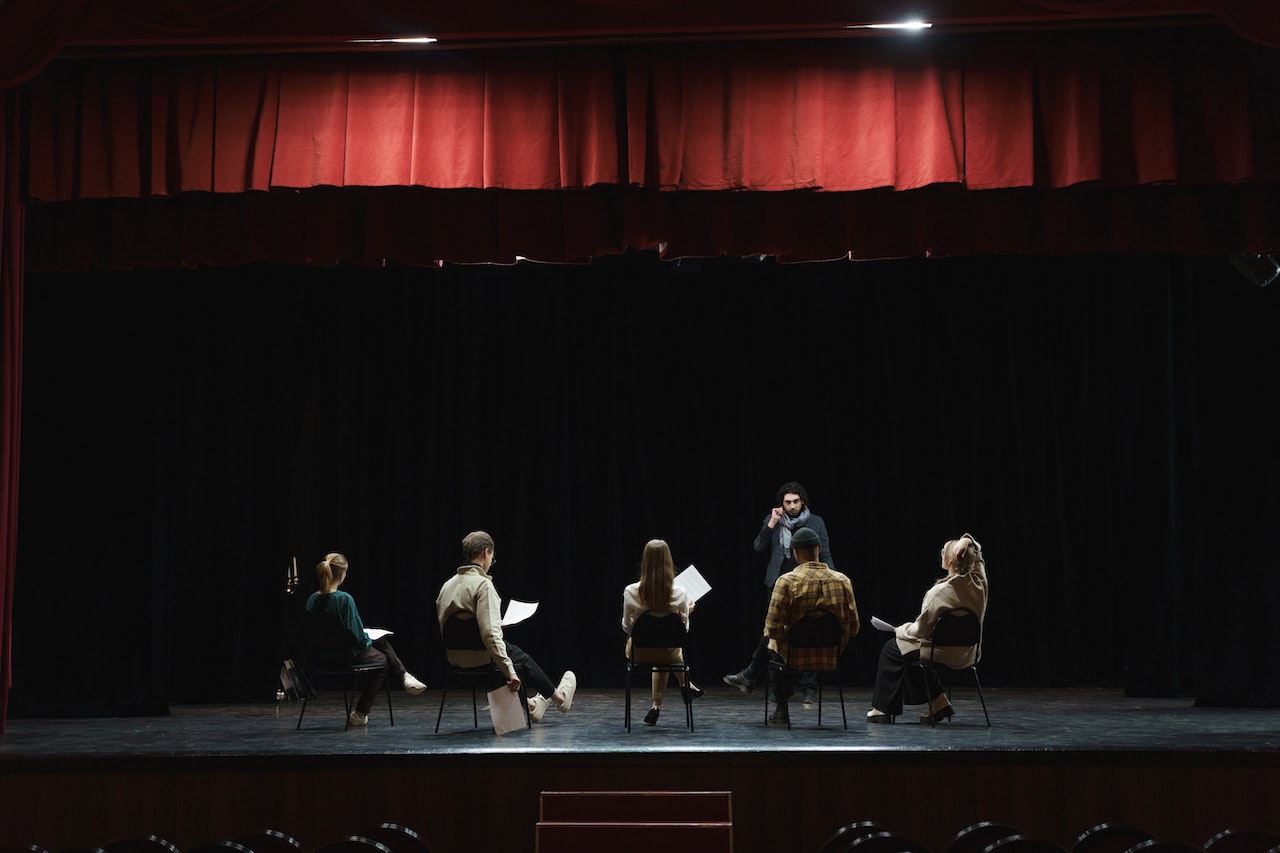
Drama script by Putu Wijaya (credit: pexels.com)
Putu Wijaya is known as a writer, journalist, painter, film and soap opera scriptwriter who is popular in Indonesia. Putu Wijaya has several hit drama scripts, one of which is titled Bila Malam Bertambah Malam. This drama was released in 1970 and has been widely known and popular. The drama script tells the story of the character Gusti Biang, who is a nobleman.
He is a widow who has a husband known as a figure of Indonesian fighters. Not alone, Gusti Biang lives with several people who help him at a house named Wayan and Nyoman Niti. The story of Gusti Biang is found in Putu Wijaya's work, which complements his career in the world of theater or drama.
In addition, Putu Wijaya also has several other drama works such as Lautan Bernyanyi, Invalid, Dag-Dig-Dug, Hum-Pim-Pah, and so on. Here is an example of Putu Wijaya's drama script titled Bila Malam Bertambah Malam.
ACT I
NIGHT AT GUSTI BIANG'S RESIDENCE. A PERFECT BALAI FOR RESIDENCE.
GUSTI BIANG CALLING WAYAN.
Scene I
NYOMAN IS SEEN PREPARING DINNER FOR GUSTI BIANG. WHILE WAYAN IS CARVING A STATUE. ORIGINAL SOUNDTRACK: WAYAN...Wayaaaaaan....
NYOMAN SIGNALS WAYAN.
NYOMAN: Is it true that Ida will come home today?
WAYAN: Yes...
Scene II
IN THE LIVING ROOM THERE ARE ROCKING CHAIRS AND GUEST CHAIRS. GUSTI BIANG CONTINUES TO COMPLAIN.
GUSTI BIANG "That old man never seems to be around when he is needed. He must be lying in his bed, singing like a love-struck person pretending not to hear, even though I have shouted until my neck broke. Wayaaaaan... Wayaaaaan old man
WAYAN: Nuna sugere GUSTI BIANG, it sounds like someone is shouting
GUSTI BIANG: My neck is broken calling you, are you still using your ears?
WAYAN: Of course Gusti Biang, that's why I came.
GUSTI BIANG: Don't argue with me. You are old and blind, your ears are infested with lice.You are deaf, lazy, and argumentative, only able to socialize with the unimportant.Can you hear that, deaf ears?
WAYAN: Yes, Gusti Biang.
WAYAN LEAVES THE ROOM AND GUSTI BIANG REMAINS SEATED AND TAKES A NEEDLE.REPEATEDLY RUBBING HIS EYES WHILE GRUMBLING.
The above example is a snippet of the script by Putu Wijaya.In addition, there is still scene 3 continuing the story between Gusti Biang, Nyoman, and Wayan.
8. Drama Script by Iwan Simatupang

Drama script by Iwan Simatupang (credit: pexels.com)
Iwan Simatupang is also known as a popular writer in Indonesia.He has several popular drama works.One of them is titled Bulan Bujur Sangkar.This drama, released in 1960, tells the story of characters named Orang Tua and Anak Muda.
This story involves a main character who wants to build a hanging pole as a symbol of life and death.However, the arrival of a young person changes everything, and after a deep debate, the young person becomes a part of the pole, indicating the end of his life.In addition to this drama, Iwan Simatupang also has several other works such as RT Nol/RW Nol, Kaktus dan Kemerdekaan, and others.Here is an example of Iwan Simatupang's drama script taken from mamikos.com.
Characters: Orang Tua and Anak Muda
Scene 1
Orang Tua
(Seen busy preparing the hanging pole).
Are you ready? How magnificent my life is. I have prepared my entire life to search for the location of the most precious wood for you. Searching for the location of the most precious rope in the world.
For almost six decades, I have explored the earth, climbed various high mountains, sailed vast oceans, and traveled through treacherous deserts. Hope almost faded when life was on the line. For six decades, I continued to breathe for a noble ambition.
Finally, I found you. You, whom I have long searched for, turned out to be here, far from the fierceness of the ocean. A handful of moss befriended with silence that is loud with its own silence.
I found you high up. Finished.How happy my heart would be if I knew I was the one who ended it.
After that, he ambushed again.Unfortunately, once again the parents managed to slip away.
Parents
What do you mean?
Young People
Father's story ends now!Now!And I'm the one who will end it.
A straw overlaid with mountain peak snow, which has grown tired of the white and tall color. Are you ready! Now you can start your usefulness!
Then a young man entered with a wild face, a tired face, and his hand was carrying a machine gun. He looked surprised when his eyes landed on the gallows, where he saw someone standing calmly next to the gallows. He then pointed his carried machine gun at him.
Parent: Wait a minute! Don't be hasty. Let's determine our own stance first. So as not to make a mistake in interpreting our own roles. Who will kill or who will be killed.
Youth: What does it mean, Father?
Elder: Behavior should always be in accordance with the character that wants to be portrayed.
(He feels like taking the gun held by the youth)
The external nature should always be the same as the spiritual nature, so that..
(The youth quickly realizes and immediately throws away the gun. Then a gunshot is heard).
in order to achieve unity of space, unity of time, and unity of action.
Youth: Father wants to kill me?
Elder: Who wants to kill you?
Youth: Father wants to finish me off.
Elder: Kill you? Me? Intend to kill you?
Youth: Yes, Father wants to kill me!
Elder: Why? What is the reason? What goal makes me have to kill you?
Youth: You're disrespectful! Damn it! The goal!
He then immediately attacks the elderly person. But unfortunately, the elderly person manages to dodge.
Elder: Wait! Don't rush. Every behavior must obey a certain style.
Youth: Style? Action? I don't care. Damn everyone! Right now, the most important thing for me is to end this play. Finished. How happy my heart would be if I knew I was the one ending it.
After that, he ambushed again. Unfortunately, once again the old man managed to slip away.
Old Man: What do you mean?
Youth: Father's story is over now! Now! And I am the one who will end it.
The above drama script is a snippet from Iwan Simatupang's work entitled 'Bulan Bujur Sangkar'.
Those are some examples of short drama scripts that KLovers can know. In addition to knowing about short drama scripts, KLovers can also learn about the explanation of what a drama script is and how to make it.
Scene 1
Old Man
(Seen busy preparing the hanging pole).
You are ready. How magnificent my life is. I have prepared my entire life to find the location of the most precious wood for you. To find the location of the most precious rope in the world.
For almost six decades, I have explored the earth, climbed various high mountains, sailed vast oceans, and traveled through treacherous deserts.
Hope was almost fading when life was almost slipping away. For six decades, I continued to breathe for a noble goal.
Finally, I found you too. You, whom I have been searching for so long, turned out to be here, far from the fierceness of the ocean. A handful of moss silently befriending the silence that is loud with its own silence.
I found you high and far away. A single straw overlaid with mountain peak snow, which has grown tired of the white and tall colors. Are you ready! Now you can start your usefulness!
Then a young man entered with a wild face, his face looked tired, and his hands looked like he was carrying a machine gun.
He looked surprised when his eyes fell on the gallows, there he saw someone standing calmly next to the gallows. He then pointed his machine gun.
Parent
Wait a minute! Don't rush. Let's first determine our own stance.
So as not to make a mistake in interpreting our own roles. Who will kill or be killed.
Youngster
What does it mean, Dad?
Parent
Behavior should always be in accordance with the character that wants to be portrayed.
(He feels like he can take the machine gun held by the youngster)
The nature of birth should always be the same as the spiritual nature, so that …
(The youngster immediately realizes and immediately throws away the machine gun. Afterwards the sound of gunshots was heard).
… in order to achieve unity of space, unity of time, and unity of action.
Young Man
Does father want to kill me?
Parents
Who wants to kill you?
Young Man
Does father want to finish me off?
Parents
Killing you? Me? Intend to kill you?
Young Man
Yes, father wants to kill me!
Parents
Why? What's the reason? What goal makes me have to kill you?
Young Man
Disrespectful! Damned! Goal!
He then immediately ambushed the old man. But, unfortunately, the parents managed to avoid..
Parents
Wait! Don't rush.Every behavior must obey a style.
Young People
Style?Behavior?I don't care.To hell with everything!What matters most to me right now is to end this drama.
(kpl/gen/dhm)
Disclaimer: This translation from Bahasa Indonesia to English has been generated by Artificial Intelligence.









